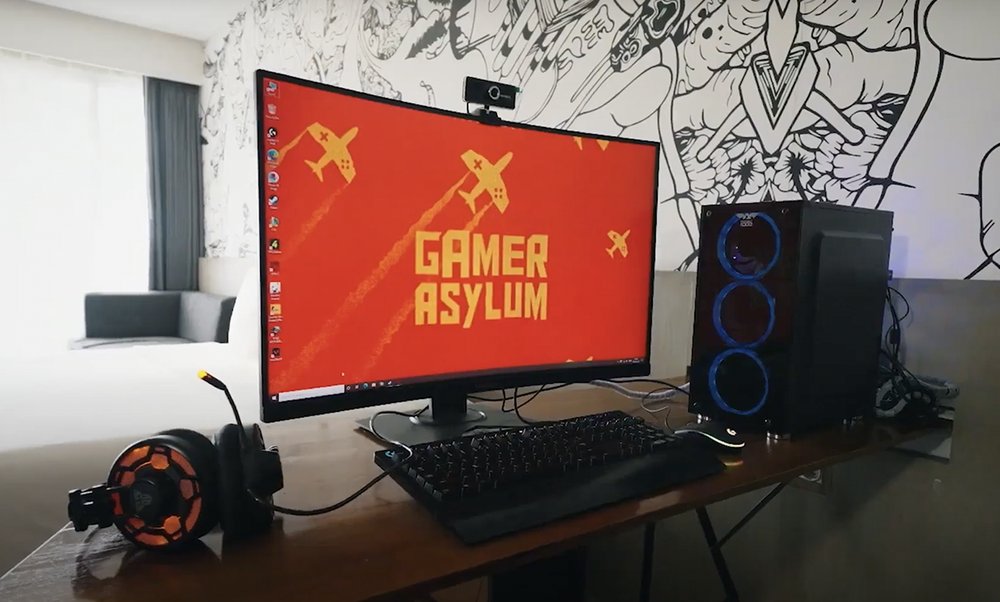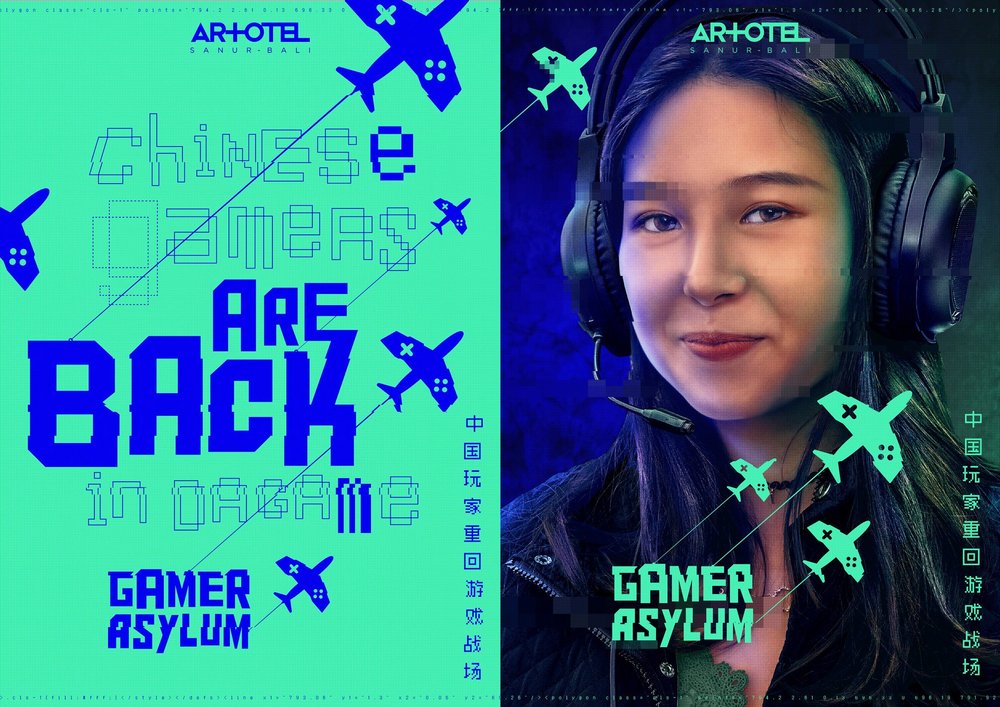Campaign of the Week
Balinese hotel rebrands as ‘asylum’ from China’s gaming ban /
Artotel Group turns hotel rooms into hi-tech havens to appeal to gamers after China's government curtailed young people's screen time
With border restrictions and lockdowns enforced across the globe since 2021, the pandemic has had a severe impact on travel, with tourist-dependent economies such as Indonesia particularly suffering as a result. CNN reports that only 49 international visitors came to Bali, the Indonesian island, in 2021 – in 2019, there were 6.3 million.
Inspired by a gaming ban the Chinese government introduced in the summer of 2021, Southeast Asian hotel chain Artotel Group spotted a playful way to attract more international customers.
The measures barred gamers in China under 18 years old from playing more than three hours’ worth of video games a week – that is, one hour a day, from 8pm until 9pm on Fridays, Saturdays and Sundays and public holidays. The strict restrictions encompassed all devices including mobile phones, making the ban near impossible to circumvent from within China.

The campaign, created with Ogilvy Singapore, turned hotel rooms of its Sanur branch in Bali into Gamer Asylums. According to the brand, the concept rooms boasted high-speed wifi, and could be personalised and included a fully equipped gaming computer, gaming chair, headset, and preloaded games such as DOTA2 and Genshin Impact. The campaign ran between March and the end of June 2022.
The hotel chain advertised the campaign via ads on Facebook and Instagram as well as a promotional video with a time-lapse showing the concept room being set up.
Results / According to the case study video, the campaign generated a 535% increase in Chinese visitors and a 59.7% spike in room bookings. The campaign won a Silver in the Brand Experience & Activation Category at the Cannes Lions Festival of Creativity 2022.

Contagious Insight /
Problem-solving as a strategy / Identifying the plight of Chinese gamers, the Gamer Asylum initiative is a neat example of cultural fluency and quick thinking. Artotel spotted a difficulty in people’s lives and turned it into potential, crafting an experience that attracts a new type of guest, ones that wouldn’t necessarily think of travelling as an option. By reframing the nature of its offering, it honed in what its target audience, young Chinese people, really wanted – a haven to enjoy their hobby without restrictions. Instead of advertising the quality of its amenities or the attractiveness of its destination, the hotel chain brought two seemingly unrelated elements – gaming and travel – to get people to just stay in their room and play. Flipping the travel experience on its head like this really hit home, as seen from the resulting 535% spike in Chinese visitors.
Something to experience / In 2021, authors Renée Mauborgne and W Chan Kim (Blue Ocean Strategy) told Contagious about how brands can move away from saturated markets (red oceans) and towards untapped areas where competition doesn’t exist yet (blue oceans). Speaking about identifying new growth opportunities, Mauborgne advises: ‘Uncover what limits the size of your industry and discover the ocean of non-customers you can unlock.’ In 2019, we reported on W Hotels’ extravagant room service menu option, promoting itself to mukbang enthusiasts and highlighting the chain as a place to have memorable experiences. Likewise, Artotel looked beyond appealing to seasoned travellers and typical tourists, and targeted its own particular group: Chinese gamers. The Gamer Asylum rooms turn Artotel into the destination itself, rather than Bali, and the tailored services exemplify how to grow appeal and attract new visitors.
Want more of the same? /
We don’t just write about best-in-class campaigns, interviews and trends. Our Members also receive access to briefings, online training, webinars, live events and much more.






